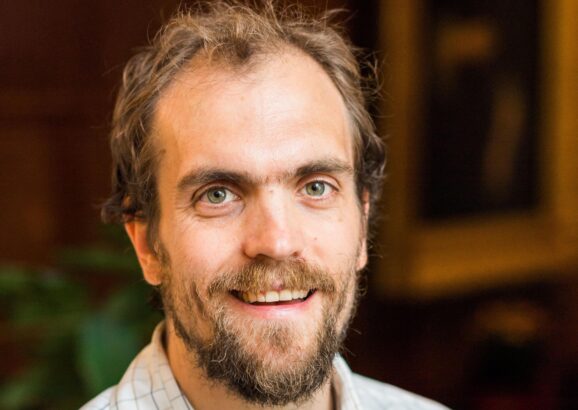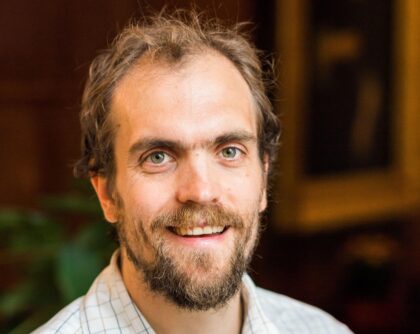Philip Harris PhD '11
Research Interests
Philip Harris seeks to discover dark matter and understand the fundamental properties of the Higgs boson. He searches for dark matter in many different forms, from small experiments using a proton beam dump to CMS detector on the Large Hadron Collider. He has performed some of the most precise measurements of the electroweak force in his work. His work complements more conventional dark matter satellite and direct detection experiments providing a new angle. Philip has extended this work towards measurements of the Higgs boson properties and even more exotic signatures, which rely on Artificial Intelligence(AI). His work has heralded a new strategy of Higgs boson measurements that relies on AI to bring a deeper understanding of Higgs interactions.
Philip’s research exploits new techniques in deep learning to search for the unknown as well as new approaches to resolve the structure of quark and gluon decays, known as jet substructure. As one of the founders of the Fast Machine Learning organization, Philip is leading a considerable effort to build real-time deep learning systems using new types of processor technology, including FPGAs, GPUs, and ASICs. This ranges from deep learning on petabit/s data at the LHC to multi-messenger astronomy with gravitational wave detection. Philip maintains an interest in jet substructure measurements in the quark-gluon medium of heavy ion collisions, along with an interest in cutting-edge machine learning techniques.
More info:
- Fast Machine Learning Lab
- A3D3: Accelerated Artificial Intelligence Algorithms for Data-Driven Discovery
- CMS Experiment at CERN
Biographical Sketch
Philip Harris joined the MIT faculty in 2017. Born in Sao Paulo, he received his B.S in Physics from Caltech in 2005, and his Ph.D from MIT in 2011 on research performed at CERN with the Large Hadron Collider. From 2011-2013, Philip was a CERN fellow working on the Higgs discovery. From 2014-2017, he was a CERN staff scientist working on dark matter searches at the CMS experiment. Philip is one of the founders of the Fast Machine Learning Organization. Also, he is currently the experimental coordinator of The Institute for AI and Fundamental Interactions (IAIFI), and he is the deputy director for the Accelerated Artificial Intelligence Algorithms for Data-Driven Discovery (A3D3) Institute.

Professor Phil Harris wins 2023 Digital Technology Award
Nominated by students for his use of Jupyter notebooks and open public data in 8.316-Data Science in Physics
Awards & Honors
- 2023 // Teaching with Digital Technology Award, MIT "for his use of Jupyter notebooks and open public data in 8.316-Data Science in Physics"
- 2021 // Buechner Prize for Outstanding Undergraduate Advising, MIT
- 2021 // DOE Office of Science Early Career Research Program Award
- 2013 // Aspen Block Award
